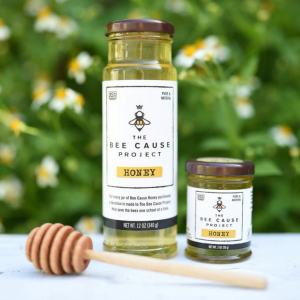Bee A Friend to Pollinators
Habitat Program
Program Overview
Welcome to The Bee Cause Project Pollinator Habitat Program for South Carolina schools! We are here to help you learn how to Bee A Friend to Pollinators on your school’s or organization’s campus this year. Our top priority is providing quality programming that is comprehensive and easily shared with your community. Read on to learn more about the program details and ways we will help you deliver each component with confidence.
Through this program, we help organizations make small changes to improve pollinator habitats and promote even bigger changes in their communities. The offerings are designed to support you as you create and implement pollinator habitat spaces and educational programming.
Thank you for your enthusiasm and commitment to pollinator education. We look forward to you joining our network and hope you will be inspired to Bee a Friend to Pollinators. Please stay in touch with us on Facebook and Instagram at @thebeecause. We would love to see how you use this program in your community, tag us when applicable.
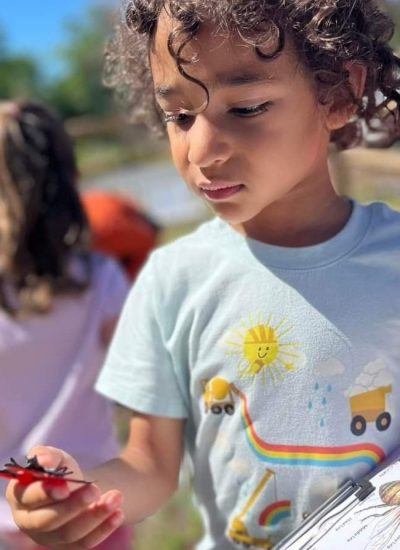
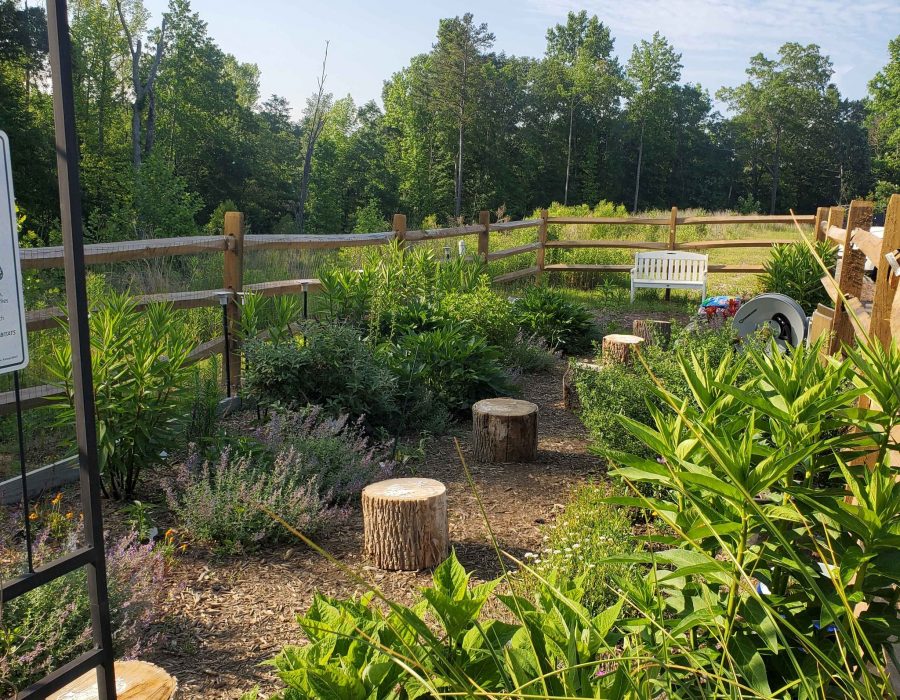
The Bee Cause Team will assist in multiple ways including private platforms for educator interactions and student interactions, personalized communication, a monetary stipend, and educational tools. Your pollinator team’s goal is to either begin a new pollinator habitat or enhance an existing pollinator space. This program utilizes two platforms to enhance communication across the state. First, Padlet is used to enhance educator and student interactions across multiple school districts. Personalized communication between the cohort is facilitated via a private Facebook group so that you can share your successes and challenges.
The purpose of the program is to implement a sustainable, campus-based program that supports pollinators through habitat building, community education, and good old-fashioned hands in the SOIL!
As a recipient of the grant, you are responsible for implementing a sustainable, campus-based program that introduces and supports pollinators and their habitats. By agreeing to participate in this program and accepting grant funds, you will be expected to: (1) complete a post-project survey one year from the date of receiving your grant funds (Sept. 2024), (2) participate in email check-ins, and (3) document and share pictures of your amazing accomplishments and engaged students.
Join us and your fellow pollinator educators on The Bee A Friend Facebook Community to share your journey. We will continue to share content, activities, resources, other grant opportunities, and more throughout the year. The resources selected for this program are pollinator-focused, student-centered, and age-appropriate.
Introduction to the Pollinator Habitat Program
Watch our 1-hour webinar informational webinar to acquaint yourself with the resources available to you and your students!
Printable Resources for you and your classroom
Pollinator Education Resources
- Richland SWCD Educators’ Guide to Pollinator Conservation
- Xerces Society for Invertebrate Conservation
- Pollinator Partnership
- Pollinator Toolkits and Worksheets
- Bee Smart School Garden Kit
- The Bee Cause Project
- iNaturalist, GLOBE, Million Pollinator Garden Challenge
- Green School Alliance Pollinator Gardens
- LEAD for Pollinators
- Monarch Joint Venture
- Audubon Adventures
- Environmental Education Association of South Carolina
Scan QR code to post to our Padlet page
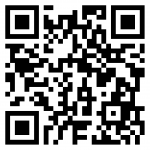
Looking for more funding?
Looking for ways to bring the love of bees to your community? Well…we’ve got you covered! Click to watch and learn how to ‘engage’ and share your love of pollinators around your neighborhood. You may be able to find more supporters or volunteers than you think.
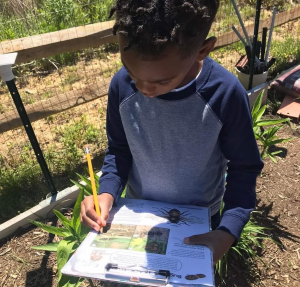
Have questions? Start here!
Who is The Bee Cause Project?
We are a non-profit organization with a mission to inspire the next generation of environmental stewards while protecting our planet’s precious pollinators. We offer grants and programs to schools and libraries across the country to support pollinator education in the classroom including STEAM curriculum and beekeeping resources. Learn more by watching Meet The Bee Cause Project.
How can I help?
You already are! Your participation in The Bee Cause programming through lesson plans and pollinator activities brings awareness to the plight of pollinators. Use The Bee Cause resources to help you find the best way to introduce your classroom to the wonderful world of pollinators.
How do I get started using all of these resources?
We recommend working with your administration and staff to form a Pollinator Team. Work as a team to decide how you will utilize the resources in the kit based on your unique needs. Hosting a Bee A Friend to Pollinator Event at your library is as easy as providing a read-aloud opportunity with one of our Book Club Challenge activities, assessing your campus with the lesson plan provided, and establishing your new pollinator-friendly grow bag.
Why are pollinators important?
Protecting our planet’s most precious pollinators should be everyone’s top priority. Bees are responsible for pollinating 70% of the top 100 food crops worldwide, that is one in every three bites of food on our plates. These hardworking insects also pollinate a wide variety of plants that provide food for other animals, and in the case of honey bees, produce wax, honey, and propolis. Bees, butterflies, hummingbirds, flies, moths, and many other pollinators are also vital to our ecosystem providing food resources for other animals. Check out this resource – The Critical Importance of Pollinators.
How do I know if my campus is pollinator-friendly?
Great question! The Bee A Friend To Pollinators Lesson will help your Pollinator Team and your Event Guests determine your friendliness based on how many pollinating insects you find. And we’ve got easy suggestions on how to be more friendly as a result of this program.
What is a seed ball?
Seed balls are a sustainable method to cultivate plants in a way that provides a larger window of time for sowing to occur. Seed balls, also known as earth balls or nendo dango, consist of a variety of different seeds rolled within a ball of clay and compost which is dried before dispersal. Nendo Dango is a planting technique created by the agriculturist and microbiologist Masanobu Fukuoka during the 194os to replant large areas of forests. Seed balls are an activity that is perfect for families and classrooms. Seed balls create a beautiful pollinator habitat that supports pollinators in your community. To learn more go to Gardening with Wildflower Seed balls.
Why do we make seed balls?
To make them easier to sow!! Essentially, a seed ball is a mass of pre-planted seeds. This means that the seed begins its lifecycle as soon as it meets moist soil or matrix material. The seeds do not sprout right away if you dry the seed ball out first. Once they are spread or sowed in your neighborhood they have a higher chance of survival. Did you know that seeds only need one single burst of light to start their life? This is why we keep them in paper packets and in cool, dry places.
Where can I buy seed balls?
Seed balls kits are available at Seed-Balls.com and even on Amazon. Although seeds come with the kit, you will most likely need additional seed packets. It would be best to purchase seeds native to your region to ensure that you can promote local pollinators by planting native species.
Where can I find more information about Native Bees?
Native bees are fascinating and unique to each region of the country. We suggest researching what kinds of native bees live in your area. Students can get involved too. We recommend Kiddle.co for kid-friendly research. Check out these videos for more information – Mason Bees Are A Gardener’s Best Friend and Native Bee Diversity in North America.
How do I know what will grow in my area to attract pollinators?
We recommend using this Ecoregional Planting Guide to learn more about what works in your area. Then talk to your local plant nursery to find out more about year-round blooms and proper soil use.
Bee a Friend to Pollinators in your own backyard!
Want to learn how to make your backyard more pollinator-friendly? Join Ms. Patricia to help pollinators where you live, go to school, and where you play. Ms. Patricia will tell you about an exciting project you can do in your own backyard called Bee a friend to Pollinators. Produced with the Bee Cause Project and Clemson Cooperative Extension. After watching Ms. Patricia, you can download your own backyard assessment!!
The Bee Cause Project private label honey is available at Savannah Bee Company
Do you love honey? Our friends at Savannah Bee Company created private label honey to benefit our mission at The Bee Cause Project. Proceeds from the purchase of this honey help us to protect pollinators. Please go to Savannah Bee Company to purchase a delicious sweet treat!

